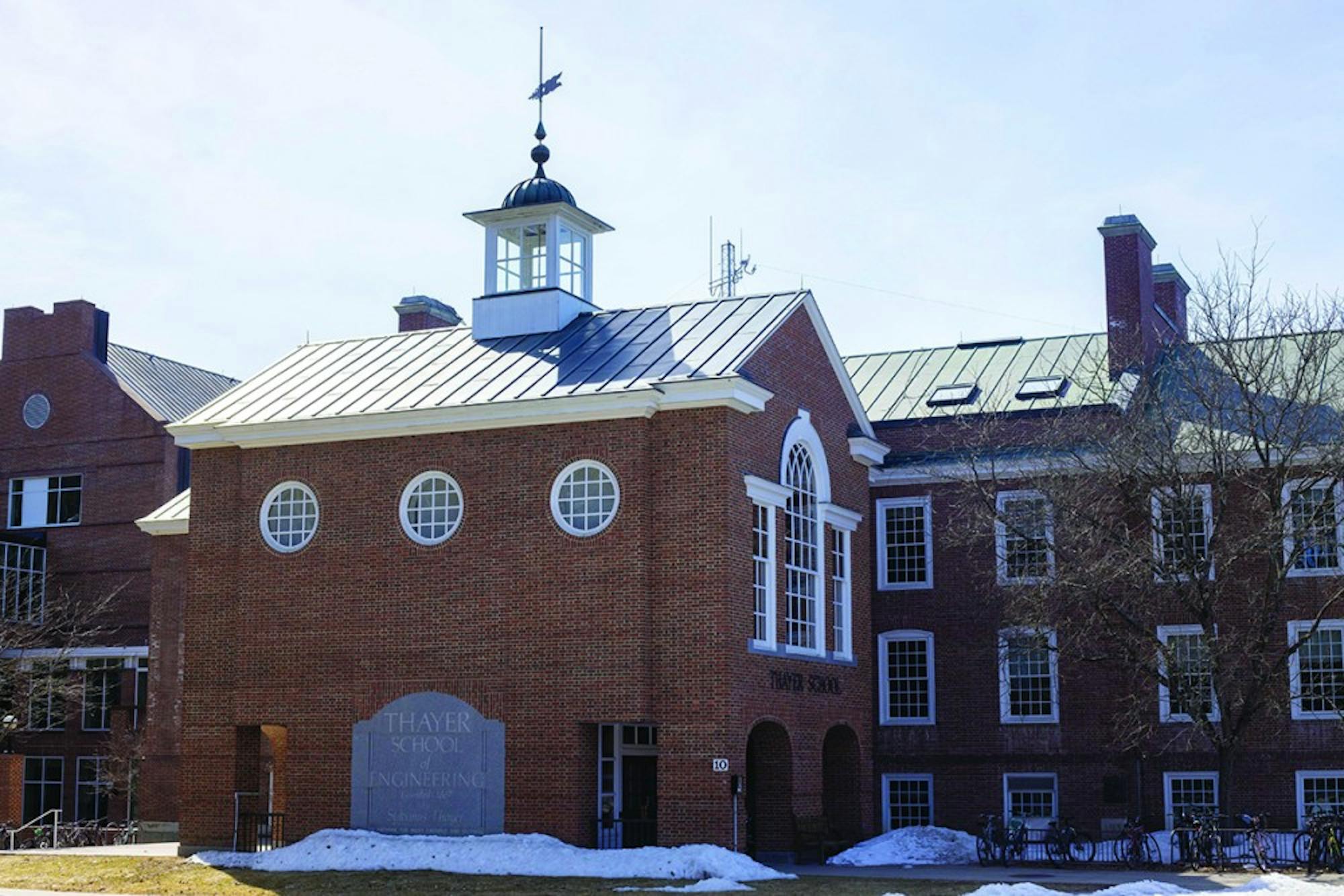A team of eight Dartmouth students was one of five finalists for NASA’s Breakthrough, Innovative and Game-Changing Idea Challenge, a competition that invites both undergraduate and graduate student teams to create aerospace design projects to solve real-world problems. The Team Dartmouth members — Thayer School of Engineering students David Dick TH, Alexa Escalona TH, Grace Genszler TH, Thomas Hodsden TH, Peter Mahoney ’19, Morgan McGonagle TH, Zoe Rivas TH and Christopher Yu ’19 — aimed to create a greenhouse that would support a crew of four for a 600 Martian-day mission on Mars. The team will be representing the College during the second round of the competition at the Langley Research Center in Hampton, VA on April 23 and 24.
The eight students met in ENGS 89, “Engineering Design Methodology and Project Completion” and ENGS 90, “Engineering Design Methodology and Project Initiation,” which are taught together as a two-term engineering design sequence in which students work on projects as teams. Professor of engineering Benoit Cushman-Roisin, who serves as a faculty advisor for the team, said that the timing of NASA’s video submission deadline — which coincided with the students’ time in ENGS 90 — increased the students’ excitement for the challenge. He added that the leadership of Yu and Escalona catalyzed the eight students’ work together.
“The milestone [of the project] was the submission of the video back in January and then the great excitement of finding out that our team was among the five finalists, combined with the fact that the other finalists were large teams from multiple universities,” Cushman-Roisin said. “[We were] a single team of eight students — large for us, but small compared to the competing teams.”
Genszler explained that the team aimed to solve some of the logistical challenges associated with travel to Mars.
“Our general problem statement that we’ve been working on whenever we present is to look at different ways to report long-term missions on different planets, namely Mars,” Genszler said. “We figured out [which] plants, how to design the inch-area of a structure so that it could store all the plants, how you can power it, what sensors, where you supply water — everything.”
The team’s project is called DEMETER, short for “Deployable Enclosed Martian Environment for Technology, Eating, and Recreation.” The eight food crops the team decided on — broccoli, chufa, kale, potatoes, soybeans, strawberries, sweet potatoes and wheat — would provide 3,100 calories per day for the astronauts.
“We were really hoping we’d win, and, for a while, I think, after we submitted our proposal, we had to wait a few weeks,” Escalona said. “It was very nerve wracking for a little while and we were pretty nervous. But then we won, so that was awesome!”
Despite the team’s success, however, the students are still refining their design based on feedback they received from NASA after the competition’s first round. After the second round, five BIG participants will be given to the opportunity to intern with NASA this summer.
“It was a wonderful ride,” Cushman-Roisin said. “Not only [was] the project very intriguing and unusual, but this was also a great team to work with.”




